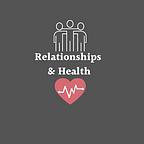Bereaved parents after losing a child- how are siblings affected?
By Evelyn Bostany and Madison Winter (MS students in Marriage and Family Therapy)
Losing a child is something that altars a parent’s life forever. This loss is usually an indescribable pain that leaves parents feeling isolated, angry, depressed, and maybe even resentful. The surviving siblings of a child that has died also suffer from grief and adjustment as they begin to live a life that differs from their previous norm.
Grief and bereavement are subjects that many people do not typically openly discuss, especially with others. However, these topics are extremely important to bring into literature to create community for the bereaved as well as to provide education on how the suffering of one person in the household can both directly and indirectly affect others in the home.
According to research, an increase in externalized problems of children who have lost a sibling can be a result of the mother’s stress and internalized struggles from coping with the loss of a child. Examples of internalized experiences may include sadness, withdrawal, anxiety, anger, and fear. Externalized examples of behavior for children may include aggression, argumentativeness, risk taking, or misbehaving, as well as substance use after losing a sibling.
The parent’s ability to cope with this loss as well as to process their grief influences the behavior of the other children in the home since grieving parents may be less emotionally available to support the bereaved siblings, which promotes negative coping.
It is important to note that bereaved children who have lost a sibling to a chronic illness, such as cancer, are at a higher risk for displaying an increase in negative externalized coping mechanisms due to the extended amount of time that the parents were emotionally preoccupied with the sick child in the home.
So, what does this mean for parents and families moving forward and how can we help support the bereaved after a loss? Naming your own grief and sadness is the first step in healing and being able to help others heal. Talking about death and grief promotes community in families and in the community by processing the loss with others and being validated in the emotional turmoil that coincides with grieving.
It is especially important for bereaved parents to find community and support so they can appropriately process the loss and work to create an environment that encourages the bereaved children in the home to do the same.
When we openly talk about our losses, we can heal and find community in others. You are not alone in your pain or in your suffering.
Source: Sharp, K. M. H., et al. The influence of parent distress and parenting on bereaved
siblings’ externalizing problems. Journal of Child and Family Studies (2020). 29:1081–1093.
Doi:10.1007/s10826–019–01640–0.
